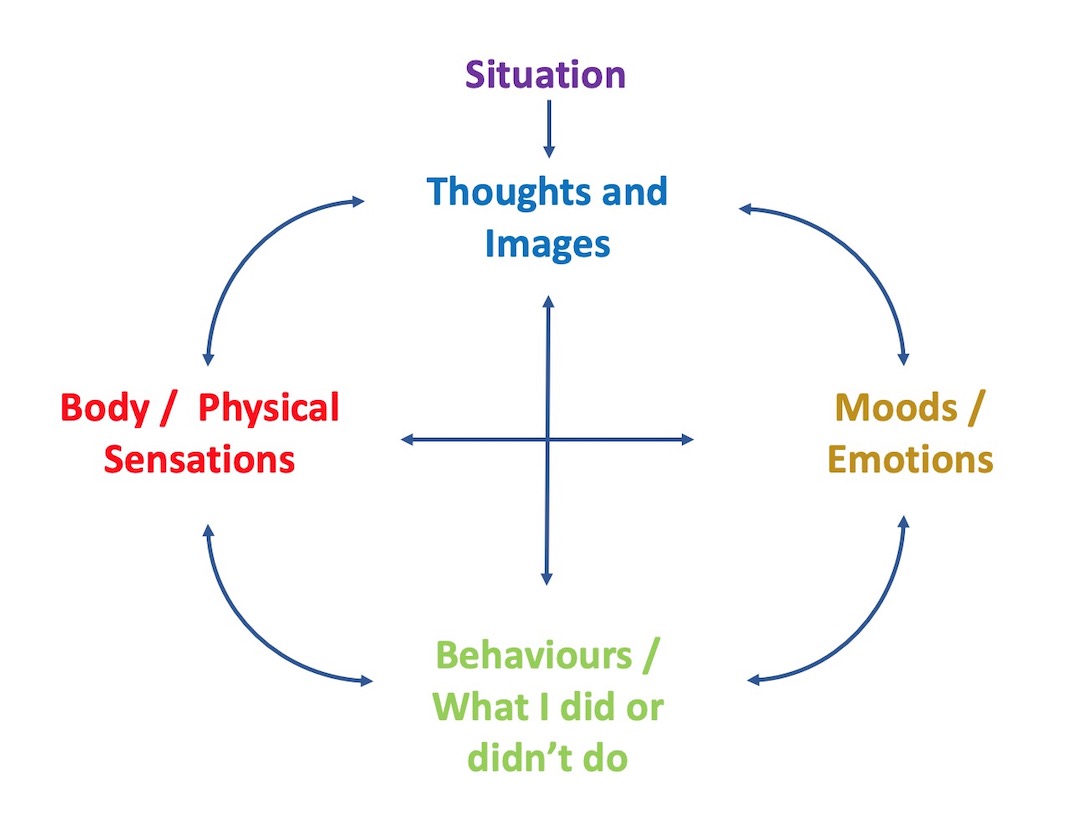 Origins
Origins
Cognitive behavioural therapy is one of the most talked about therapies of our current time yet in essence it is far from a new concept.
“What really frightens and disturbs us is not external events themselves, but the way in which we think about them. It is not things that disturb us but our interpretation of their significance” - Epictetus - Greek stoic philosopher 55-135 AD.
Epictetus taught that philosophy is a way of life and not just a theoretical subject. He believed that all external events are determined by fate, and are thus beyond our control, but we can accept whatever happens calmly. Individuals, however, are responsible for their own actions which they can examine and control through self-discipline. Suffering arises from trying to control what is uncontrollable, or from neglecting what is within our power. He believed that following these ideas would lead to happiness. While some of that may seem a little simplistic in our complex world, the essence of CBT is there.
What is CBT?
The concept behind CBT is that everything that happens to us causes us to have thoughts (cognitions), which influence our emotional and physical state and lead to consequent behaviours. This may seem like stating the obvious but quite often in modern life we are so busy we do not attend to all these areas. This can lead to feeling strong emotions or physical sensations e.g. panic, without knowing where it came from because we haven’t linked it with the thoughts we were thinking or the things we were doing. These sorts of negative patterns can in turn lead to behaviours that are unhelpful to our well-being e.g. avoidance, use of alcohol and drugs or simply restricting our opportunities due to our fears. We get into what is called in CBT a vicious circle where thoughts-feelings-behaviour feed negatively from each other. It is often represented in a widely used diagram we call a formulation and is essentially at the heart of understanding how CBT tackles problems.

How does CBT approach problems?
CBT is therapy that encourages you to work in collaboration with your therapist, helping you identify these unhelpful patterns and to start to make practical changes. It is an active, shared problem-solving based process involving attention and hard work both in the sessions and in your life away from sessions. It is by making those changes in your day-to-day life that you begin to find the happiness that Epictetus talked about.
What to expect in CBT
CBT is a structured therapy and research shows that this structure makes therapy more effective.
You may be expecting just to come and just talk about your feelings but this is not how CBT works. The session will have a plan as follows:
- Agenda setting
- Reviewing homework
- The main issue of the session
- Agreeing homework
Both you and the therapist participate actively in sessions - therapy is not something that is “done to you”!
What will the therapist do?
Certainly not just sitting and nodding wisely! CBT involves asking questions - We call this ‘guided discovery’ and encourages you to examine your thoughts and behaviour and begin to explore alternative ways of approaching your difficulties.
In addition, we will spend time ‘formulating’ ideas about your problem often in diagram form. This helps us to produce a personalised unique map or formulation of your problems - what may have caused them, and what is unhelpful and helpful in dealing with them. This formulation is based upon CBT theory and research but is always individualised to you.
I will introduce you to different CBT techniques and tools and invite you to try some out.
What do I need to do?
Therapy works best if you identify your specific problems and goals and clearly define and work on these. So, an aim of ‘wanting to feel better’ is generally what people start off saying but it does not help you or I understand what this means. Having behavioural goals e.g. to be able to travel into town on a bus helps us both know what you are working on.
You also need to be willing to try out ideas, make changes and sometimes take a few risks with things that you may fear. This will be sometimes be done in the session but mostly I will ask you to do this as homework. Homework will usually involve either reading, diary keeping and behavioural tasks that you agree to try out between sessions. Diaries are used a lot in CBT because we know that a high level of emotion affects our perception and memory. Writing things down at the time and bringing that diary to the session enables you and I to review what happened and explore alternative ways of thinking and acting for next time.
Ending therapy
People often fear losing the support of therapy and so the fact that CBT is time-limited and working towards an ending is important right from the outset. Therapy is never the ‘be all and end all’ but should be a place from which you can move on and continue to grow and change. A good outcome from therapy is if you feel you have learnt enough in the sessions to continue your own CBT journey afterwards. We should all be forever willing to question and adapt our way of being.
Where can I find out more about CBT?
I would encourage you in deciding whether CBT is the right therapy for you to do some research, You may find the following links helpful for furthermore formal definitions of CBT:
The BABCP have an excellent audio account, downloadable as a podcast from this page.